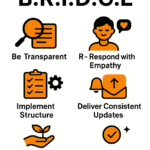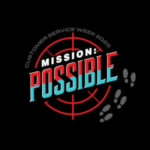Children hold a special place in the African context, including in Kenya. According to Joy Katunge Matheka, children’s issues are cross-cutting (CCIs) because the decisions made in almost every sector of society affect children. “You can hardly mention an issue that does not affect children; try it. For instance, think of traffic; children need zebra crossings.”
Consequently, Kenya is a signatory to various international conventions upholding children’s rights. These include the African Charter on the Rights and Welfare of the Child and the UN Convention on the Rights of the Child.
Moreover, Kenya’s legal framework includes laws and policies to safeguard children’s rights, welfare, and development within the country’s jurisdiction. Such laws and policies include Article 53 of the Constitution of Kenya (2010), the Children’s Act (2022), and the Sexual Offenses Act (2006). Kenya has also established the Directorate of Children Services (DCS) to facilitate the implementation of child protection laws.
However, despite these child-friendly legislations, the environment in which children live can make them vulnerable. Therefore, child protection in Kenya is a multi-agency endeavor requiring players from government agencies, NGOs, civil society organizations, community-based organizations, and even community leaders at the grassroots level.
So, what role does a child protection lawyer play in this ecosystem? Joy Katunge Matheka, an Advocate of the High Court and a child protection expert, offers insights into the child protection space in Kenya.
Ms. Matheka describes her 12-year career as a legal professional in the child protection space as the perfect puzzle. She has worked in various child protection agencies, including Childline Kenya and the Kenya Alliance for the Advancement of Children (KAACR). Joy Katunge Matheka also won the Civil Society Lawyer of the Year award during the 2021 Nairobi Legal Awards for her child protection work in the CSO space.
Based on her experience, Ms. Matheka describes a legal career in child protection as dynamic. Let us explore her shifting roles in the child protection sector and learn what it takes to break into and succeed as a child protection lawyer.
Child Protection Chose Me: Joy Katunge Matheka Career Overview
As highlighted above, Joy Katunge defines her career in child protection as the perfect puzzle. Although the legal profession wasn’t her first love, children were. While most of her primary school classmates dreamt of joining notable professions by Kenyan standards, including the legal profession, Joy wanted to be a teacher.
“I wanted to be a special education teacher because I interacted with children with special needs at a very tender age and noticed that while they were differently-abled, they were also highly vulnerable.” According to Ms Matheka, if she could have one wish, it would be that no one, especially children, should endure suffering.
However, her father wasn’t enthusiastic about her chosen career path. Therefore, he gradually used his persuasive powers to arrive at a middle ground by proposing that she could pursue a teaching career in institutions of higher learning rather than at the primary level. One of his tactics included introducing her to people within his circle who taught at universities, including a law lecturer from the University of Nairobi. That was the first piece of her perfect puzzle.
“This law school lecturer has a sister who ran a local NGO dealing with children. The subject of children piqued my interest . So, after several discussions about her sister and the NGO, I decided to visit the center where her sister worked. From the first day, I knew that was what I wanted to do.”
The second puzzle piece fell into place while Joy was pursuing her LLB at Kenyatta University. While in her third year, the school asked them to get an externship to polish their legal skills. “I had studied “Children and the Law” under Judge Hon. Justice Chigiti SC and enjoyed the course immensely.”
Armed with basic legal knowledge, Joy approached the children’s center for her externship. “The organization didn’t have a lawyer, but they linked me with an advocate who worked at Save the Children. The senior advocate guided me through complex cases and handling child protection concerns that were above what I knew.”
Ms. Matheka made the best of the opportunity, and the center entrusted her with setting up a legal docket after she graduated with her LLB from KU. By the time she completed her post-graduate diploma at KSL, she had her contract ready to establish a legal department.
A Day in the Life of a Child Protection Lawyer
So, what sets apart child protection from other kinds of legal work? According to Joy, she first gained clarity on the scope of child protection while working at Childline Kenya, an NGO that runs the 116 child helpline.
“The first position I occupied at Childline Kenya was a legal assistance counselor, meaning that besides manning the helpline, all the cases that had a legal touch or required legal guidance were redirected to my booth. Sometimes, I also had a case management team where we would sit, comb through the cases, call the specific counselors that escalated the cases and guide them on how to advise the clients.”
As highlighted above, child protection is a multi-stakeholder endeavor. Therefore, Childline Kenya exposed Ms Matheka to public-private partnerships. Consequently, she learned how to engage different stakeholders, including government and local and international NGOs, in matters of child protection and child safeguarding. “Everything gets dumped at the helpline, so it’s up to you to establish what goes where.”
One of the most important lessons she learned is that child cases are a high priority; they cannot wait. “One minute late, and you could lose a child. Therefore, you must always think on your feet because losing one child is one child too many.”
So, what does day-to-day work in child protection entail?
When most people think of a lawyer, they think of suits (the outfit and the TV show). However, according to Joy, the life of a child protection lawyer defies this ‘suits’ stereotype. “As a child lawyer, my workload is priority-based depending on the emergency situation at hand.”
Other elements of child protection include:
-
Research
Miss Katunge highlights that research is pivotal to child protection because the child protection space is dynamic. “The research facilitates up-to-date correspondences with donors. For instance, research allows child protection experts to polish up and give feedback on questions donors may have regarding issues the organization shares with them.”Moreover, the research element means keeping abreast of what is happening at the national, regional, and international pace with regard to child protection.
-
Attending technical working group meetings
“As the lawyer in the organization, I’m the focal person for a couple of technical working groups convened by the government under the Directorate of Children Services.” She highlights several technical working groups, including the technical working Groups on missing children in Kenya, sexual exploitation, online safety, and child labor.
Attending these technical working group meetings is crucial to understanding what the government is doing, given that it is a significant stakeholder in child protection matters. “Even with funds, you cannot work without the government because you must understand government policies.”
-
Travel
Child protection entails extensive travel to facilitate service delivery, such as court representation and direct interventions like investigation and crisis intervention. Additionally, child protection experts may travel to meet children’s stakeholders and inquire about the challenges they face in their lines of duty.
A child stakeholder is any individual or group with a duty of care to protect the child’s well-being. Because children’s issues are cross-cutting, stakeholders primarily include parents, teachers, and government workers from almost every ministry. Such trips are necessary to keep up with and generate an accurate reflection of the situation at the grassroots level.
“Sometimes you could be sitting in an office, reading reports and coming up with interventions that may not address the situation on the ground.” Ms. Katunge gives an example of an anti-FGM campaign she participated in a few years back in Kajiado County.
According to her, one of the most interesting findings from the campaign was that while the popular perception is that it is the least educated and older generation that favor FGM, the perception is inaccurate. In contrast, one-on-one interactions with learned women in the community established that they favored FGM because they viewed it as a birth control strategy to keep girls in school. Moreover, during the project, they also established that some hospitals conduct FGM procedures discreetly despite the practice being illegal in Kenya.
That is where the aspect of shifting roles in child protection law comes in. Besides finding the law and interpreting it for organizations, the community work side of child protection engages advocacy skills. “
“You have to be very tactful while engaging stakeholders because you cannot change attitudes, cultures, and customs overnight. You come from a point of wanting to know where they’re coming from, listening to them, then subtly telling them what the law says.”
According to Joy, being a child protection lawyer puts you on a higher platform because you can see the cultural aspect of things, yet you have the overview from the legal perspective. They may question you, sometimes unkindly, so It’s often best to use a convert from their midst.
Also, the term of stakeholders changes depending on the circumstances. For example, in the project above, if the girls tell you that they want to undergo the cut, otherwise, they won’t get married, then the stakeholders become the boys who will be potential suitors for these girls in the future.
Capacity Building for Child Protection Law
According to Joy, if what you love can pay your bills, you are living the dream. Therefore, like in any other practice area, you must love engaging and working with children to excel in child protection.
Nonetheless, passion goes hand-in-hand with equipping yourself with knowledge to facilitate policy development, research, and advocacy. Ms Matheka recommends child-centric CSOs as invaluable upskilling and capacity-building resources for individuals and entities seeking to venture into the child protection space.
“However, child protection is wide, so training depends on your area of interest; is it child trafficking, online safety, child labor, teenage pregnancy?” Ms Katunge’s current area of interest is digital safety for children, and she recommends taking courses offered by the African Advanced Level Telecommunications Institute (AFRALTI) to upskill in this area.
Besides CSOs, NGOs like UNICEF also offer child protection courses. She also recommends visiting the Center for Human Rights under the University of Pretoria’s website for child protection and rights courses.
Also, the Directorate of Children Services has numerous resources, including accurate, timely, and consistent data from launched reports. “Perhaps you’re interested in taking up research but you’re stuck on whether the data on the subject matter regarding children in a particular place is available. The Child Protection Information Management System (CPIMS) has all this information. However, you must receive authorization from the Directorate of Children Services to use this information.”
Lastly, as a child protection lawyer, you’ll encounter gut-wrenching cases. “Everything, and I mean everything gets dropped on your table; from children who’ve been murdered to child victims of sexual abuse.” Therefore, Ms Matheka recommends psychological debriefing to prevent the development of post-traumatic stress disorder (PTSD). While receiving psychological counseling is not upskilling per se, you cannot pour from an empty cup, so take care of your mental health first.












